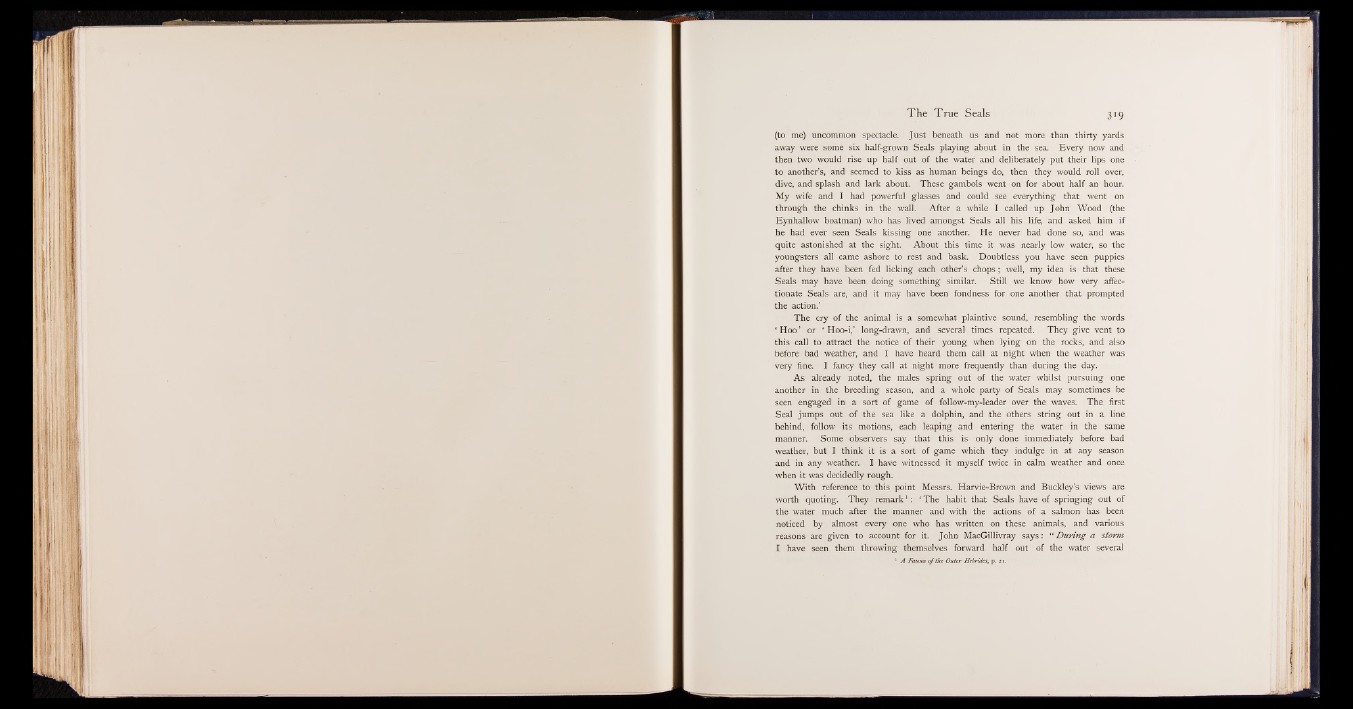
T h e True Seals 319
(to me) uncommon spectacle. Just beneath us and not more than thirty yards
away were some six half-grown Seals playing about in the sea. Every now and
then two would rise up half out of the water and deliberately put their lips one
to another’s, and seemed to kiss as human beings do, then they would roll over,
dive, and splash and lark about. These gambols went on for about half an hour.
My wife and I had powerful glasses and could see everything that went on
through the chinks in the wall. After a while I called up John Wood (the
Eynhallow boatman) who has lived amongst Seals all his life, and asked him if
he had ever seen Seals kissing one another. He never had done so, and was
quite astonished at the sight. About this time it was nearly low water, so the
youngsters all came ashore to rest and bask. Doubtless you have seen puppies
after they have been fed licking each other’s chops; well, my idea is that these
Seals may have been doing something similar. Still we know how very affectionate
Seals are, and it may have been fondness for one another that prompted
the action.’
The cry of the animal is a somewhat plaintive sound, resembling the words
‘ Hoo ’ or * Hoo-i,’ long-drawn, and several times repeated. They give vent to
this call to attract the notice of their young when lying on the rocks, and also
before bad weather, and I have heard them call at night when the weather was
very fine. I fancy they call at night more frequently than during the day.
As already noted, the males spring out of the water whilst pursuing one
another in the breeding season, and a whole party of Seals may sometimes be
seen engaged in a sort of game of follow-my-leader over the waves. The first
Seal jumps out of the sea like a dolphin, and the others string out in a line
behind, follow its motions, each leaping and entering the water in the same
manner. Some observers say that this is only done immediately before bad
weather, but I think it is a sort of game which they indulge in at any season
and in any weather. I have witnessed it myself twice in calm weather and once
when it was decidedly rough.
With reference to this point Messrs. Harvie-Brown and Buckley’s views are
worth quoting. They remark1 : ‘ The habit that Seals have of springing out of
the water much after the manner and with the actions of a salmon has been
noticed by almost every one who has written oh these animals, and various
reasons are given to account for it. John MacGillivray says: “ During a storm
,1 have seen them throwing themselves forward half out of the water several
1 A Fauna o f the Outer Hebrides, p. 21.